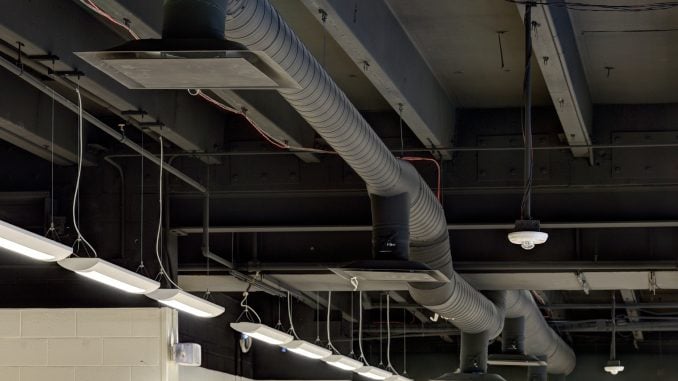
Competition and confidence in the private sector has been a driver of economic growth since the industrial revolution. Today, innovation has helped many industries increase operational efficiencies. One such industry is the power industry.In good part due to strong investment, private-sector involvement, and rebate programs, many communities and businesses nationwide are embracing energy efficiency. As such, the role of financing has become an increasingly important issue. The goal: save on energy usage and produce reliable, affordable, and secure energy for North Carolina.In North Carolina, energy efficiency led the clean-energy industry in both employment and revenues, accounting for nearly one-half of all clean energy jobs and generating more than $2.5 billion in 2016, according to the North Carolina Sustainable Energy Association.While projects such as rooftop solar may be more visible, efficiency upgrades and improvements lower energy bills, reduce maintenance costs, improve health and safety, and even increase market value. In fact, using less energy has become a strategic cost-saving goal.The private sector not the government needs to develop innovative financial solutions to drive wider adoption. One proven financial structure is property assessments for clean energy, known as “PACE” financing. In simple terms, PACE allows a home or business owner to use private financing to pay for 100 percent of the cost of roofing, flood protection, windows, and energy-efficiency or renewable-energy projects.The amount is repaid annually via their property tax bill for up to 20 years, using a portion of the utility bill all while preserving their own personal or corporate capital and credit. PACE repayment transfers with the property when it is sold. And, under most leases, the PACE payment can be passed on to tenants who pay energy bills.At a recent conference, Ryan Miller, founder of NC Building Performance Association, shared a recurring theme: the upfront cash needed within the current rebate model is an obstacle for many businesses and consumers. They simply cannot afford it despite the long-term savings. The introduction of PACE would provide 100 percent financing for all project costs including “soft costs” such as energy audits or engineering studies that can hamper project development.North Carolina’s closest neighbors are successfully using PACE as a private sector-driven financing option. Virginia, Maryland, Florida, and 30 other states have PACE legislation. Miller pointed to a few standout states for inspiration; Connecticut originates more than 45 percent of all PACE financing in the nation. And Texas has financed water reduction, energy-efficiency, and planned renewable projects using PACE. Most notably, more than one-half of the counties in Maryland have joined PACE in the past six months.In North Carolina, PACE financing could be a game changer for the widespread adoption of cost-saving, energy-reducing home and building improvement projects. These could include energy-efficiency retrofits, HVAC system replacements to reduce consumption, and costs during the hot summer and cold winter months.PACE programs have already funded over $3 billion in energy upgrades across the nation, according to PACENation. The financing accelerates retrofits to improve real-estate values, provides economic development benefits and job creation for counties throughout the U.S.: all without taxpayer money.PACE is a clear demonstration of how investment creates net operational savings for business and consumers. Energy-efficiency projects reduce energy consumption in buildings between 20 to 40 percent, and clean-energy projects often cover 90 percent of a businesses’ energy needs. The Connecticut PACE program alone estimates installed improvements to date have saved businesses nearly $200 million in energy costs.With PACE, North Carolinians would be able to take action on more building improvement and energy-reduction projects, resulting in less energy use and more money for themselves while also benefiting local economies through job creation, building revitalization, and more.The availability of effective financing would drive more long-term growth and competition through the private sector, not government or utilities.Genevieve Sherman is a part of the Greenworks Lending team. Greenworks has played a primary role in originating in over $100 million in C-PACE deals in three years.



